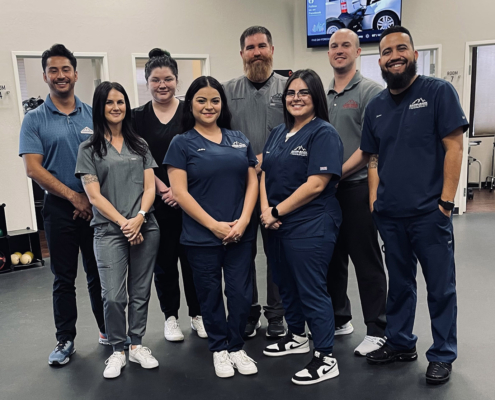
Pain can be a debilitating condition that affects millions of people around the world. Whether it is chronic or acute, pain can greatly impact a person’s quality of life and prevent them from enjoying everyday activities. However, there are ways to effectively manage and even alleviate pain, allowing individuals to unlock the secrets to a pain-free life.
The key to effective pain management lies in understanding the underlying cause of the pain and implementing a comprehensive approach that addresses both the physical and emotional aspects of the condition. It is crucial to work with healthcare professionals who specialize in pain management to develop an individualized treatment plan.
One of the most common methods of pain management is medication. Over-the-counter pain relievers such as acetaminophen or ibuprofen can help alleviate mild to moderate pain. For more severe or chronic pain, prescription medications may be necessary. Opioids, for example, can be effective for short-term use but carry the risk of addiction and other side effects. Therefore, it is important to work closely with a healthcare professional to find the most appropriate medication and dosage for each individual.
Aside from medication, there are various non-pharmacological approaches to pain management. Physical therapy is often recommended for individuals with musculoskeletal pain or injuries. A physical therapist can design a personalized exercise program to strengthen muscles, improve flexibility, and reduce pain. Additionally, techniques such as massage therapy, chiropractic care, and acupuncture have been found to be beneficial in managing pain by promoting relaxation and reducing muscle tension.
Another aspect of pain management is addressing the emotional and psychological components of pain. Chronic pain can often lead to anxiety, depression, and stress, which can exacerbate the perception of pain. Therefore, it is essential to incorporate coping mechanisms and stress-reduction techniques into the treatment plan. This may include cognitive-behavioral therapy, relaxation exercises, mindfulness meditation, and support groups.
Furthermore, lifestyle modifications can play a significant role in pain management. Maintaining a healthy weight and engaging in regular exercise can help reduce pain and improve overall well-being. A balanced diet rich in fruits, vegetables, and whole grains can also have anti-inflammatory effects, which can alleviate pain. Additionally, getting enough restorative sleep is crucial for pain management, as lack of sleep can increase pain sensitivity.
It is important to note that pain management is a multidisciplinary approach that requires active participation from the individual. Keeping a pain diary can be helpful in identifying triggers and patterns, as well as tracking the effectiveness of various pain management strategies. Open communication with healthcare professionals about pain levels, treatment options, and any concerns or side effects is crucial for finding the most effective pain management plan.
In conclusion, unlocking the secrets to a pain-free life involves implementing a comprehensive approach to pain management that addresses the physical, emotional, and psychological aspects of the condition. This includes working with healthcare professionals to develop an individualized treatment plan, incorporating medication and non-pharmacological approaches, addressing emotional well-being, making lifestyle modifications, and actively participating in the pain management process. By doing so, individuals can discover the key to effective pain management and regain control over their lives.